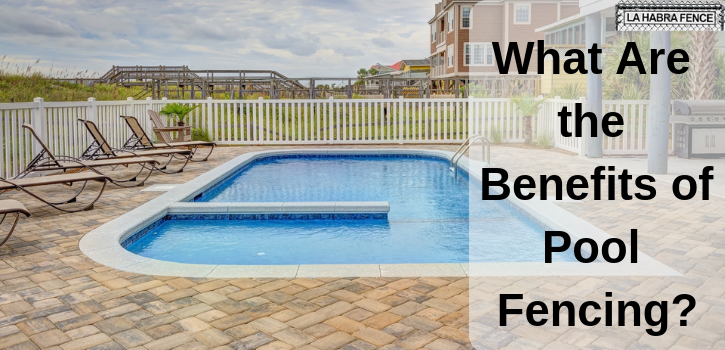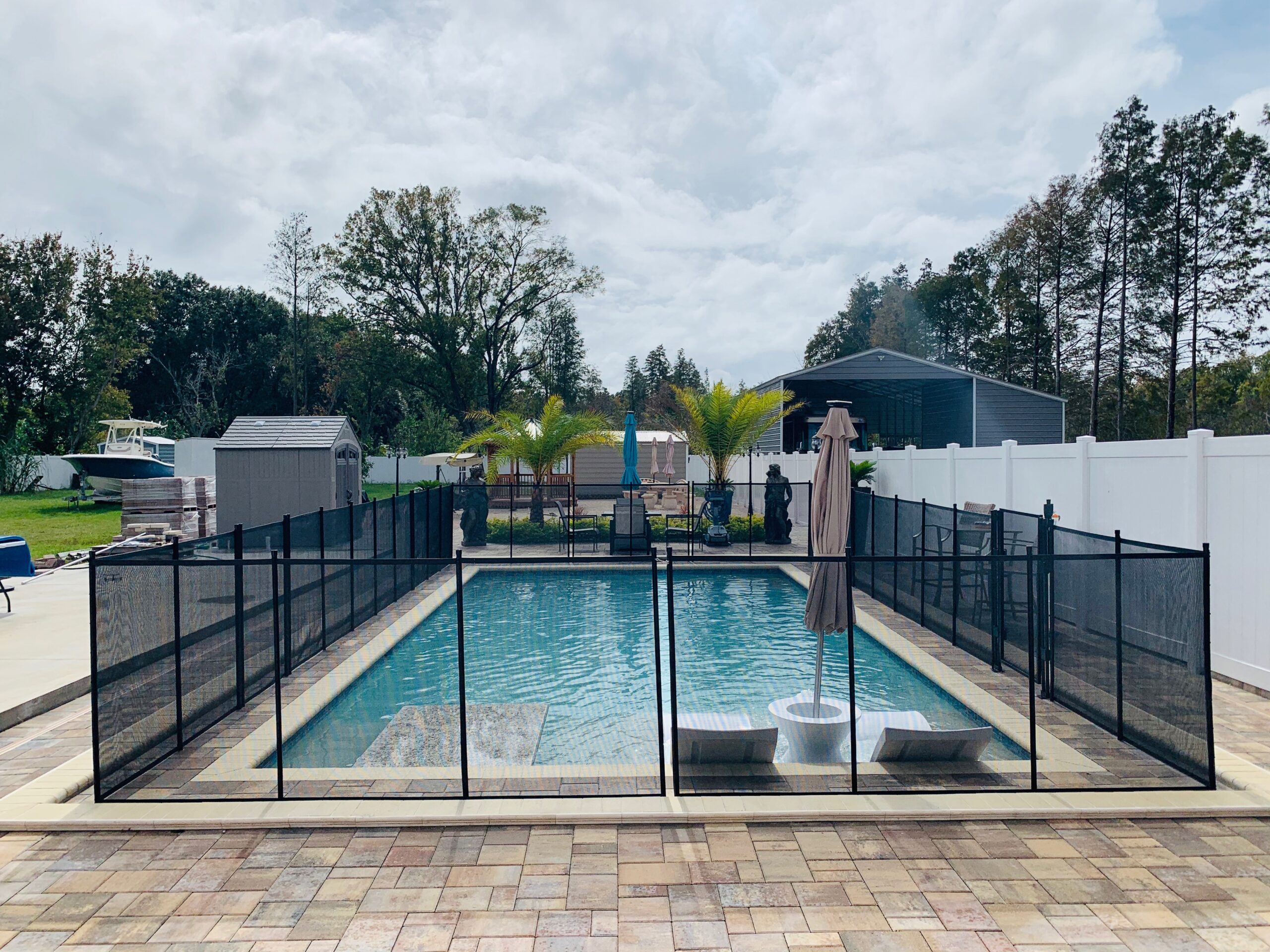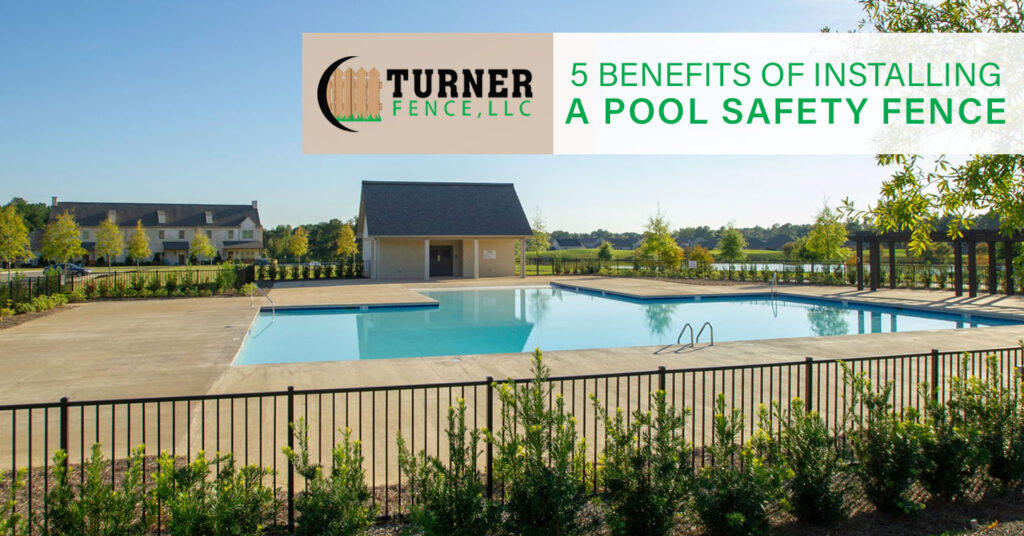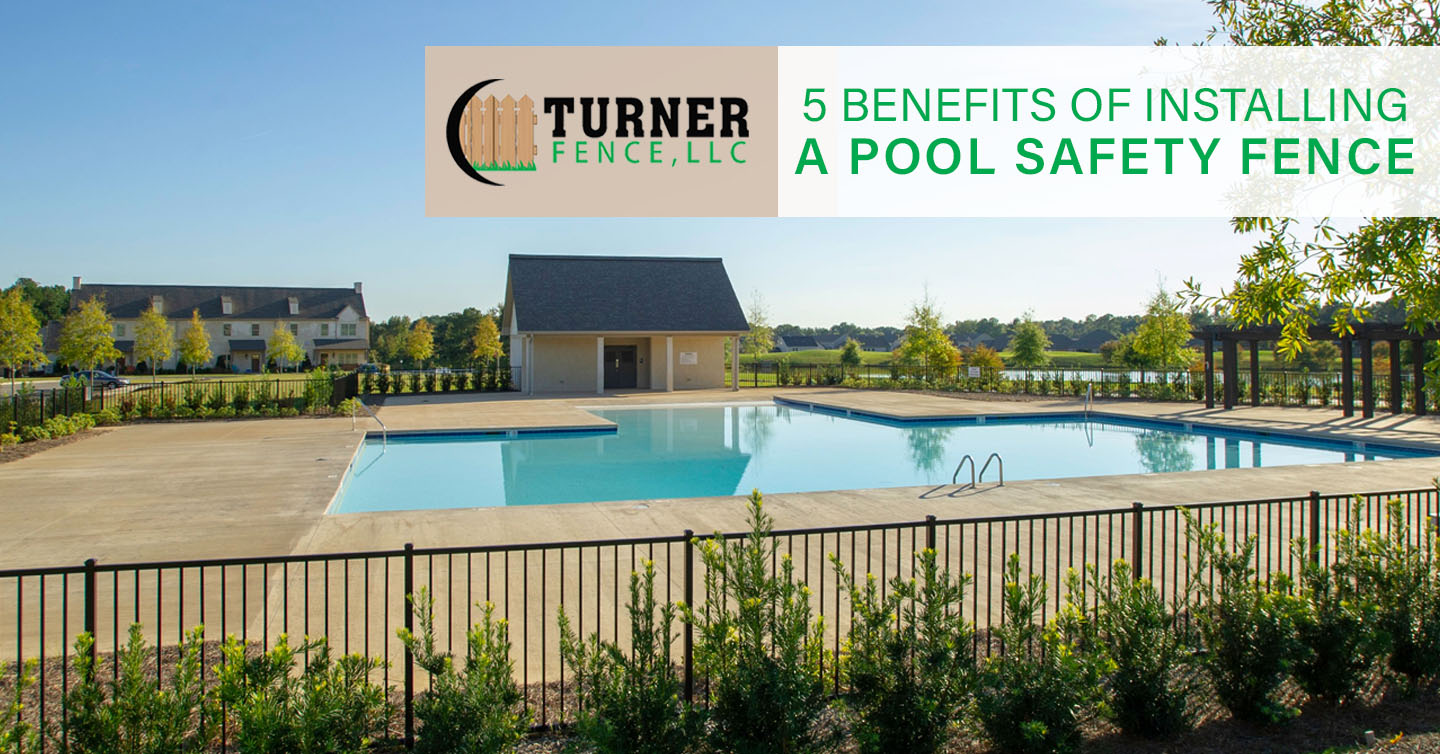Have you ever thought about installing a fence around your pool? It may not be the first thing that comes to mind when considering pool safety, but it can provide numerous benefits. In this article, we’ll explore the advantages of installing a pool fence and why it’s a smart choice for any pool owner. From increased safety to added privacy, you’ll learn how a pool fence can enhance your pool area and give you peace of mind.
So, what exactly are the benefits of installing a pool fence? Firstly, and most importantly, it significantly improves the safety of your pool. A fence acts as a barrier between your pool and potential accidents, especially for children and pets. By restricting access to the pool area, you can prevent drownings and keep your loved ones safe. Additionally, a pool fence can enhance your privacy by keeping unwanted eyes away. Whether you want to relax in peace or host gatherings without prying neighbors, a pool fence ensures that your private outdoor sanctuary remains private. In our article, we’ll delve even deeper into these benefits and provide you with valuable information to help you make an informed decision about installing a pool fence.
The Benefits of Installing a Pool Fence

Introduction
Having a pool in your backyard can provide endless hours of fun and relaxation for you and your family. However, it is essential to prioritize safety when it comes to owning a pool. One of the best ways to ensure the safety of your loved ones is by installing a pool fence. In this article, we will discuss the numerous benefits of installing a pool fence, different types of pool fences, considerations for choosing the right one, the installation process, maintenance and care tips, pool fence safety, enhancing security, design ideas, cost factors, regulations and codes, the value of professional installation, and common mistakes to avoid.
Why Install a Pool Fence
Prevents Accidental Drownings
Accidental drownings are a tragic reality that can occur when proper safety precautions are not in place. By installing a pool fence, you create a barrier between the pool area and the surrounding environment, significantly reducing the risk of accidental drownings. This is especially important for households with young children or pets who may inadvertently venture into the pool area unsupervised.
Complies with Legal Requirements
In many jurisdictions, it is a legal requirement to have a pool fence installed. These regulations are in place to ensure the safety of individuals, particularly children, who may come into contact with the pool. By installing a pool fence that complies with local building codes, you not only protect your loved ones but also avoid potential legal issues and fines.
Enhances Safety for Children and Pets
Curious children and pets can be drawn to the allure of a pool, putting themselves at risk of accidental drowning. A pool fence acts as a physical barrier that restricts access to the pool area, preventing unsupervised entry and reducing the chances of accidents. With a pool fence in place, you can have peace of mind knowing that your children and pets are safe from potential hazards.
Minimizes Liability for Pool Owners
As a pool owner, you have a responsibility to ensure the safety of anyone who may come into contact with your pool. By installing a pool fence, you demonstrate your commitment to safety and minimize your liability in the event of an accident. A pool fence acts as a deterrent, preventing unauthorized individuals from accessing your pool and potentially reducing the likelihood of lawsuits or insurance claims.

Types of Pool Fences
When considering installing a pool fence, it is essential to explore the different types available and choose one that suits your needs and preferences. Here are several popular types of pool fences:
Mesh Pool Fences
Mesh pool fences are a popular choice due to their versatility and durability. These fences consist of a mesh material stretched across sturdy poles. The transparency of the mesh provides unobstructed views of the pool while ensuring that children and pets cannot enter without adult supervision.
Glass Pool Fences
Glass pool fences are a stylish and elegant option that enhances the aesthetic appeal of your pool area. These fences are made of tempered glass panels held in place with stainless steel or aluminum posts. Glass pool fences offer a sleek and modern look and provide clear views of the pool.
Aluminum Pool Fences
Aluminum pool fences are known for their durability and low maintenance requirements. These fences are constructed from aluminum panels or pickets that are secured to aluminum posts. The lightweight nature of aluminum makes it easy to install, and its resistance to corrosion ensures long-lasting performance.
Wooden Pool Fences
Wooden pool fences offer a classic and timeless look that complements various outdoor aesthetics. These fences are typically constructed from pressure-treated or natural wood panels attached to wooden posts. Wooden pool fences can be stained or painted to match your preferred color scheme.
Wrought Iron Pool Fences
Wrought iron pool fences exude elegance and charm with their intricate designs and durability. These fences are made from iron bars or panels that are welded together and secured to wrought iron posts. Wrought iron pool fences can be customized to your desired design and add a touch of sophistication to your pool area.
Choosing the Right Pool Fence
Considerations for Safety
When choosing a pool fence, safety should be your top priority. Ensure that the fence’s height meets local building code requirements and that there are no gaps or openings that a child or pet could squeeze through. Additionally, opt for self-closing and self-latching gates to prevent accidental gate openings.
Considerations for Aesthetics
While safety is crucial, it is also essential to select a pool fence that enhances the overall aesthetic of your outdoor space. Choose a fence material and design that complements your existing landscaping and architectural style. With various options available, you can find a pool fence that adds visual appeal to your pool area.
Considerations for Maintenance
Consider the level of maintenance required for each type of pool fence. Some materials, like aluminum and glass, are low maintenance and require minimal upkeep. On the other hand, wooden fences may require periodic staining or painting to protect them from the elements. Factor in the time and effort you are willing to invest in maintaining your pool fence.
Considerations for Budget
Your budget will play a significant role in determining the type of pool fence you can install. Each material comes with its own price range, so it is essential to set a budget and explore options within that range. Remember to consider long-term costs, such as maintenance and repairs, when making your decision.

Installation Process
Installing a pool fence requires careful planning and execution to ensure its effectiveness and longevity. Here is a general outline of the installation process:
Measuring and Planning
Before installing a pool fence, accurately measure the dimensions of your pool area to determine the amount of fencing material required. Plan the location of fence panels, gates, and any other additional features you may incorporate.
Gathering Required Tools and Materials
Once you have planned the layout of your pool fence, gather all the necessary tools and materials. These may include fence panels, posts, gate hardware, concrete or anchor systems, and any specialized tools required for your chosen fence type.
Preparing the Pool Area
Prepare the pool area for fence installation by clearing any obstacles or debris and ensuring the ground is level. Mark the locations where the fence posts will be installed according to your planned layout.
Installing the Fence Panels
Begin installing the fence panels by attaching them to the posts according to the manufacturer’s instructions. Ensure that each panel is level and securely fastened to the posts, leaving no gaps.
Securing the Fence Gates
If your pool fence includes gate access, install the gate(s) according to the manufacturer’s instructions. Ensure that gates are self-closing and self-latching, and test their functionality to ensure they meet safety requirements.
Testing and Final Adjustments
Once the fence panels and gates are installed, thoroughly inspect the entire fence to ensure its stability and effectiveness. Make any necessary adjustments to ensure that all components are in proper working order.
Maintenance and Care
To maintain the functionality and appearance of your pool fence, regular maintenance is essential. Here are some maintenance and care tips:
Cleaning the Fence Materials
Regularly clean your pool fence to remove dirt, debris, and stains. Follow the manufacturer’s instructions for cleaning and use appropriate cleaning products that are safe for the specific fence material.
Inspecting for Damage
Periodically inspect your pool fence for any signs of damage such as cracks, loose fastenings, or deteriorated parts. Promptly address any damage to prevent further issues and ensure the continued effectiveness of the fence.
Repairing or Replacing Components
If you notice any damaged or worn-out components, repair or replace them immediately. This may involve tightening loose screws, replacing broken panels or pickets, or repairing gate hardware.
Maintaining Gate Functionality
Regularly check the functionality of your pool fence gates. Ensure that they close and latch securely on their own, preventing unintentional access to the pool area. Lubricate gate hinges and locks as needed to maintain smooth operation.

Tips for Pool Fence Safety
In addition to installing a pool fence, here are some important safety tips to follow:
Never Leave Children Unsupervised
Regardless of having a pool fence, it is crucial to never leave children unsupervised near a pool. Pool accidents can happen in a matter of seconds, so always make sure that an adult is present and paying attention when children are around the pool.
Keep the Fence Locked
When the pool is not in use, always lock the pool fence gate(s) to prevent unauthorized access. A securely locked fence adds an extra layer of safety and ensures that only those with permission can enter the pool area.
Remove Climbable Objects Nearby
Remove any objects near the pool fence that children or pets could use to climb over the fence. This includes chairs, tables, toys, and other items that may tempt them to try and gain access to the pool area.
Teach Children Pool Safety Rules
Educate children about pool safety rules, including the importance of not entering the pool area without adult supervision. Teach them how to swim at an early age and reinforce the safety guidelines whenever they are near water.
Enhancing Pool Fence Security
While a pool fence itself is a significant safety measure, there are additional steps you can take to enhance security further. Here are some options to consider:
Adding Security Alarms
Install security alarms that are triggered if someone opens the pool fence gate without authorization. These alarms can alert you to any potential breaches and prompt immediate action.
Installing Pool Covers
Pool covers provide an additional layer of protection by physically covering the pool’s surface. These covers can be retractable or manual and can be locked to prevent unauthorized access.
Using Motion Sensor Lighting
Install motion sensor lighting around the pool area to deter potential intruders and improve visibility during nighttime. Motion sensor lights automatically turn on when they detect movement, alerting you to any activity near the pool.

Pool Fence Design Ideas
A pool fence doesn’t have to be purely functional; it can also contribute to the overall aesthetics of your outdoor space. Here are some design ideas to consider:
Modern and Minimalist Designs
Choose a pool fence with clean lines and a sleek design that complements a modern or contemporary outdoor setting. Opt for materials like glass or aluminum for a minimalist look that blends seamlessly with the surroundings.
Rustic and Natural Designs
If you prefer a more natural or rustic vibe, consider a wooden pool fence. The warmth and texture of wood can create a charming and inviting atmosphere around your pool.
Traditional and Classic Designs
For a timeless and elegant look, consider a wrought iron pool fence. Wrought iron fences often feature intricate designs and detailing that adds a touch of sophistication to any outdoor space.
Customization Options
Many pool fence manufacturers offer customization options, allowing you to tailor the design according to your preferences. Explore decorative elements, color choices, and personalized touches to make your pool fence truly unique.
Cost of Installing a Pool Fence
The cost of installing a pool fence can vary depending on several factors. Here are some key considerations:
Factors Affecting the Cost
Factors that can influence the cost include the size of the pool area, the type of material chosen, the complexity of the installation, additional features like gates or alarms, and any customization or design elements.
Average Cost Range
The average cost of installing a pool fence can range from $1,500 to $10,000 or more, depending on the factors mentioned above. It is essential to obtain quotes from reputable contractors to get an accurate estimate for your specific project.
Cost Comparison with Other Safety Measures
When considering the cost of a pool fence, compare it to other safety measures such as pool covers, security alarms, or surveillance systems. While pool fences may require an upfront investment, they often provide a more cost-effective solution in the long run.
Pool Fence Regulations and Codes
It is crucial to familiarize yourself with local building codes and regulations regarding pool fences before installation. Here are some key considerations:
Local Building Codes
Different regions have specific building codes in place regarding pool fences. These codes dictate the required fence height, gate safety features, material specifications, and other relevant factors. Ensure your pool fence design and installation comply with these codes to avoid any legal issues.
Fence Height Requirements
Building codes typically outline minimum fence height requirements that must be met. Fence heights can vary, but common minimums range from 48 to 60 inches. Consult your local building department for the specific height requirements in your area.
Gate and Latch Regulations
Building codes often specify gate and latch requirements for pool fences. Self-closing and self-latching gates are typically mandated to prevent accidental gate openings. These requirements ensure that the pool area remains secure, even if a gate is left ajar.
Permitting and Inspections
Some jurisdictions require permits for pool fence installations. Contact your local building department to inquire about any necessary permits and inspections. Undertaking these steps ensures that your pool fence meets all legal requirements.
Benefits of Professional Installation
While some homeowners may choose to install a pool fence themselves, there are several benefits to opting for professional installation:
Expertise and Experience
Professional installers have the necessary expertise and experience to ensure that your pool fence is installed correctly. They are familiar with local regulations, safety requirements, and can provide guidance on selecting the best fence options for your specific needs.
Efficiency and Time-saving
Installing a pool fence can be a labor-intensive and time-consuming project, especially for those without prior experience. Professional installers have the necessary tools, equipment, and manpower to efficiently complete the installation, ensuring a hassle-free experience for you.
Warranty and Guarantee
Reputable pool fence installation companies often provide warranties or guarantees on their workmanship. This means that if any issues arise with your pool fence after installation, the company will rectify the problem at no extra cost to you.
Compliance with Standards
Professional installers ensure that your pool fence meets all safety standards and local building codes. They are well-versed in the requirements and can make necessary adjustments or modifications during the installation process to ensure compliance.
Common Pool Fence Mistakes to Avoid
To ensure the effectiveness and safety of your pool fence, be mindful of these common mistakes:
Incorrect Fence Placement
Improper placement of the pool fence can render it ineffective. Ensure that the fence completely encloses the pool area without leaving any gaps or openings that could be accessed by children or pets.
Using Inadequate Materials
Choosing low-quality or inadequate materials can compromise the durability and effectiveness of your pool fence. Invest in high-quality, durable materials that can withstand environmental factors and ensure the longevity of your fence.
Poor Gate and Latch Functionality
A gate that does not self-close or self-latch properly can pose a safety hazard. Make sure that the gate is in good working condition and that the latch securely engages when the gate closes.
Neglecting Regular Maintenance
Regular maintenance is crucial for preserving the functionality and appearance of your pool fence. Neglecting maintenance tasks such as cleaning, inspecting for damage, or repairing components can lead to the deterioration of the fence and compromise its safety.
Conclusion
Installing a pool fence is a crucial step in ensuring the safety of your loved ones and minimizing liability as a pool owner. A pool fence provides multiple benefits, including preventing accidental drownings, complying with legal requirements, enhancing safety for children and pets, and minimizing potential lawsuits or insurance claims. When choosing a pool fence, consider factors such as safety, aesthetics, maintenance, and budget. Professional installation is highly recommended to ensure expertise, efficiency, compliance with standards, and peace of mind. By installing a pool fence and following essential safety tips, you can enjoy your pool while prioritizing the safety of your loved ones.
